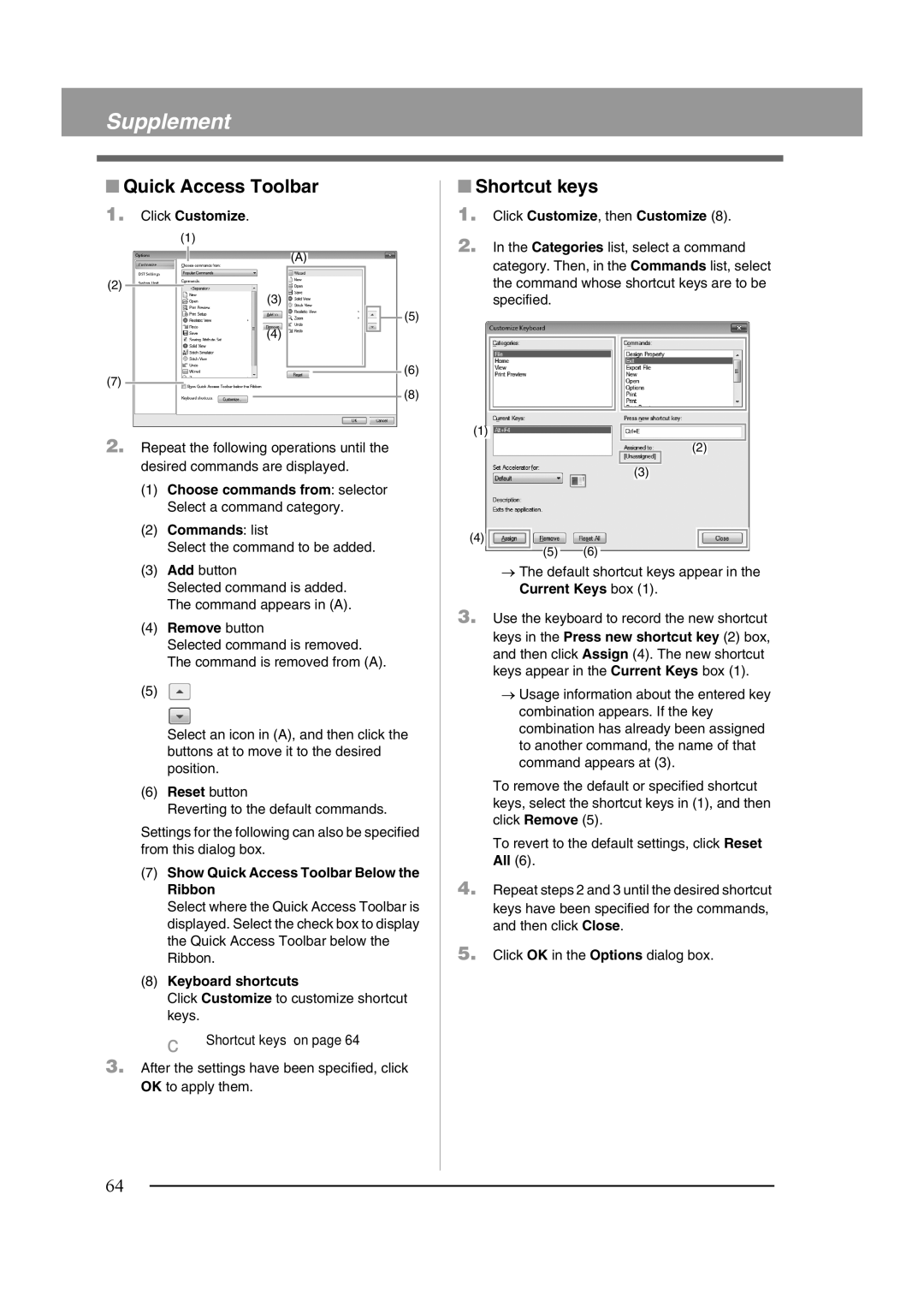
Supplement
■Quick Access Toolbar
■Shortcut keys
1.Click Customize.
(1)
(2)
(3)
(4)
(7)
(A)
(5)
(6)
(8)
1.Click Customize, then Customize (8).
2.In the Categories list, select a command category. Then, in the Commands list, select the command whose shortcut keys are to be specified.
(1)
2. Repeat the following operations until the | |
desired commands are displayed. | |
(1) | Choose commands from: selector |
| Select a command category. |
(2) | Commands: list |
| Select the command to be added. |
(4) | (6) |
(5) |
(2)
(3)
(3) | Add button |
| Selected command is added. |
| The command appears in (A). |
(4) | Remove button |
| Selected command is removed. |
| The command is removed from (A). |
(5) |
|
Select an icon in (A), and then click the buttons at to move it to the desired position.
(6)Reset button
Reverting to the default commands.
Settings for the following can also be specified from this dialog box.
(7)Show Quick Access Toolbar Below the Ribbon
Select where the Quick Access Toolbar is displayed. Select the check box to display the Quick Access Toolbar below the Ribbon.
(8)Keyboard shortcuts
Click Customize to customize shortcut keys.
c “Shortcut keys” on page 64
3.After the settings have been specified, click OK to apply them.
→The default shortcut keys appear in the Current Keys box (1).
3.Use the keyboard to record the new shortcut keys in the Press new shortcut key (2) box, and then click Assign (4). The new shortcut keys appear in the Current Keys box (1).
→Usage information about the entered key combination appears. If the key combination has already been assigned to another command, the name of that command appears at (3).
To remove the default or specified shortcut keys, select the shortcut keys in (1), and then click Remove (5).
To revert to the default settings, click Reset All (6).
4.Repeat steps 2 and 3 until the desired shortcut keys have been specified for the commands, and then click Close.
5.Click OK in the Options dialog box.
64
